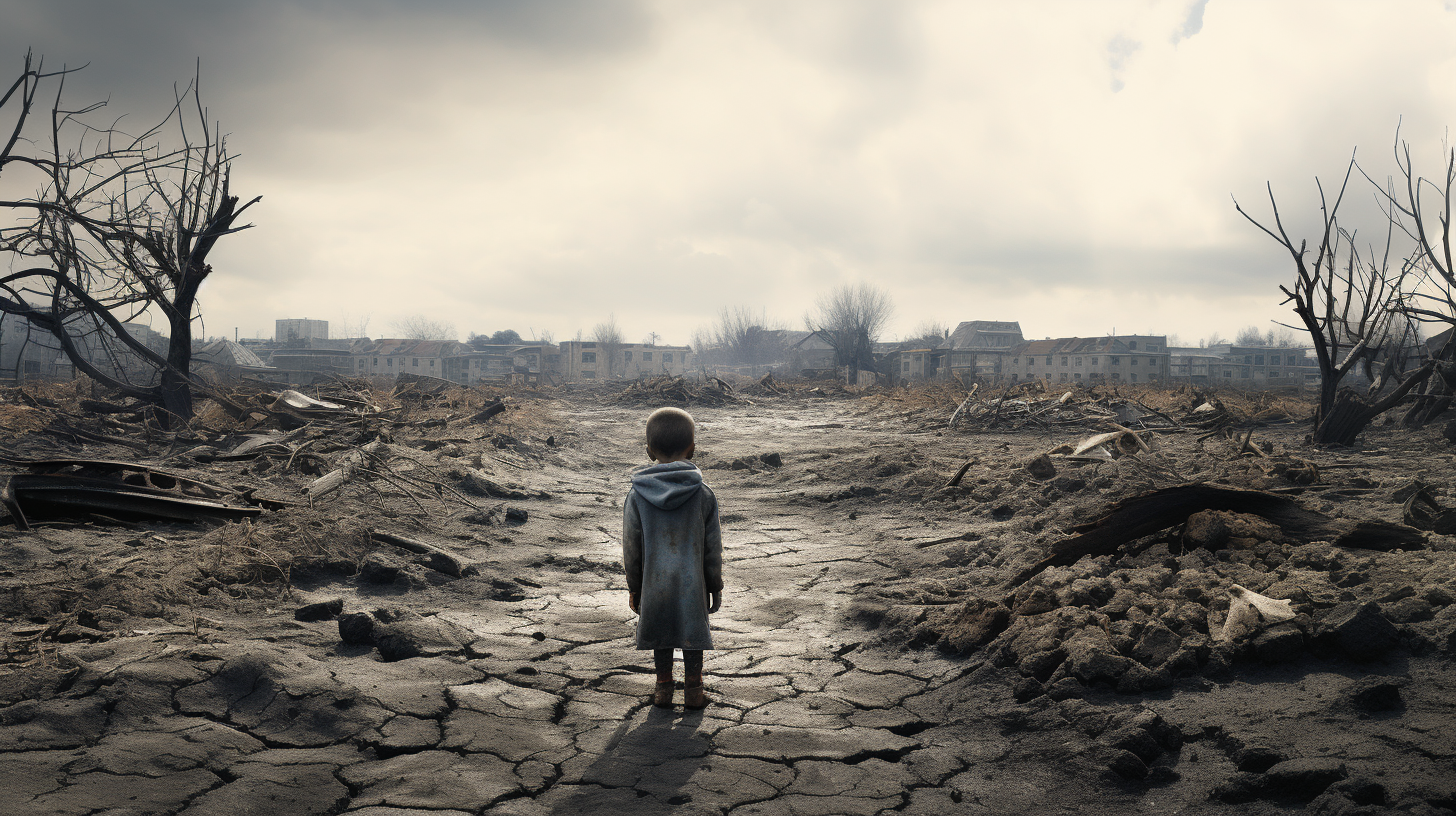The era of undisputed sovereignty is long gone, as Mother Nature reclaims her dominion, leaving anarchy and ruins where once there were nations. The term ‘Climate Orphan’ is now part of the lexicon of our times, encapsulated in the eerie silence where once toddler’s laughter and market banter mingled. Nearby, the sea, once a friend, laps hungrily on the remnants of civilization. Welcome to the obituary of countries, carved out by the rising tide, penned by humanity’s collective neglect.
“We are born of the land, our souls intertwined with the forests and the sands. To witness the erasure of one’s country is akin to watching the fading light in the eyes of a loved one,” whispers Taliyah, her voice barely rising above the whisper of the wind. She hails from an island nation, now just a memory on outdated maps, a casualty in an ever-growing list as seas rise and countries submerge.
Climate Orphans, it now seems, are not just individuals but nations themselves—entire cultures, histories, and identities drowned and displaced by a tempest amplified by decades of environmental apathy. The dystopian reality offers stark precedence—a clarion call once ignored, now a serenade to the devastation wrought by the climate apocalypse
Our story begins, cruelly, at what is now the end for many. In this series of personal recollections, we enter the lives of those who have known the unimaginable, lived the nightmare of lost national identity, and carry within them the heartbreak of their sunken homelands.
With quavering resolve, Anil recounts his final moments on the soil of his ancestors. “The evacuation was not just of people, but of spirit. Our gods did not make it on the boats. We left them to drown with our homes.” The harsh reality is that the culture and spirituality of thousands are now buried beneath the waves—a kind of cultural extinction that accompanies the physical one.
In this darkened world where the future has shriveled to the stark immediacy of survival, we find resilience yet. Even as sovereign flags are swallowed by the burgeoning sea, communities forge new identities, tethering fragments of their past to the unyielding reality of a planet scarred by humanity’s own hand. The resilience is heartrending, a feeble melody against the cacophonous backdrop of ecological disaster.
Camps, reminiscent of the climate ghettos described in earlier dispatches, have arisen. Yet, unlike those who remain ensnared within the iron embrace of these ghettos, Climate Orphans hoist their makeshift tents like flags—declarations of sheer tenacity in the face of climatic tyranny.
The stories of survival are peppered with improvisations—like the ingenious language cobbled together from the melting pot of evacuees—a babel reborn from the throes of tragedy. Here, men fish not just for sustenance but for relics of their submerged existence—snatching bittersweet mementos from the greedy clutches of the sea.
These testimonies are more than mere narratives. They serve as a grim archive of a reality that could have been abated. As we probe the lives of these wandering ghosts of veracity, the borders blurred by the relentless tide, we etch into the collective consciousness a singular truth—our inaction carries a price paid in full by the lands of the forgotten.
In the vein of the reflective mayhem captured in ‘Islands in a Storm – The Creation of Climate Ghettos’, we extend our examination to the once whispered fates of extinct nations. Who will account for these lost countries, these swallowed sanctities?
Tomorrow may witness the rebirth of hope for some, but for the Climate Orphans, hope is a luxury abandoned on the forsaken shores of their past lives. The dystopian canvas we dwell in offers no redemption arc—just a tableau of survival, testament to what once was and what could have been.
